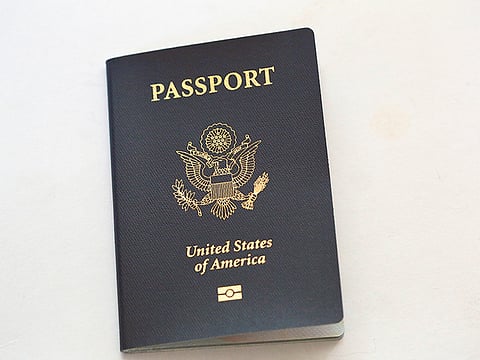US expats told to comply with tax law changes
American citizens risk losing passports if they do not report foreign income, bank accounts

Dubai
Americans must comply with tax law changes coming into effect in the new year and report income earned abroad and foreign-held bank accounts over $10,000 (Dh36,700) or else they risk losing their passports, a US financial firm said on Sunday.
The company said the new law comes into force on January 1.
Government advisers with the US State Department were unavailable for comment to confirm the veracity of the claims on Sunday given offices were closed for the weekend.
In a statement, US Financial Advisory and Audit Firm said: “it is possible that the United States expats could have their passports revoked next month if they fail to comply with their tax and financial obligations under the Foreign Account Tax Compliance Act (FATCA).”
Jim O’Niell, firm vice president, visited the company’s offices in Dubai on Sunday. His visit coincided days before the deadline when the act “stipulates that Americans — whether they are resident in the US or not — must report their worldwide income as well as their foreign bank accounts to pay taxes in the United States if they opt to retain their passports,” the firm stated.
O’ Niell said: “The UAE has signed a deal to implement the FATCA. The law requires foreign financial institutions to provide annual reports on account information of customers who are US citizens. The act was enacted by the US Congress in 2010 to target non-compliance by US taxpayers using foreign accounts.”
“The US law says that American citizens living around the world with a balance of $10,000 at any giving day per year in their bank accounts are required to submit FBAR. The FATCA also mandates financial institutions around the world to submit annual reports on their customers who are required to comply,” O’Niell said.
The Internal Revenue Service (IRS) in an media advisory issued November 23 confirmed it had upgraded its tax compliance act.
“The registration system is the backbone of FATCA,” said IRS Commissioner John Koskinen. “These upgrades improve the FATCA process, enabling the registration of sponsored entities and making it easier for registrants to use. Working with financial institutions and through intergovernmental agreements, our progress against undisclosed foreign accounts continues.”



